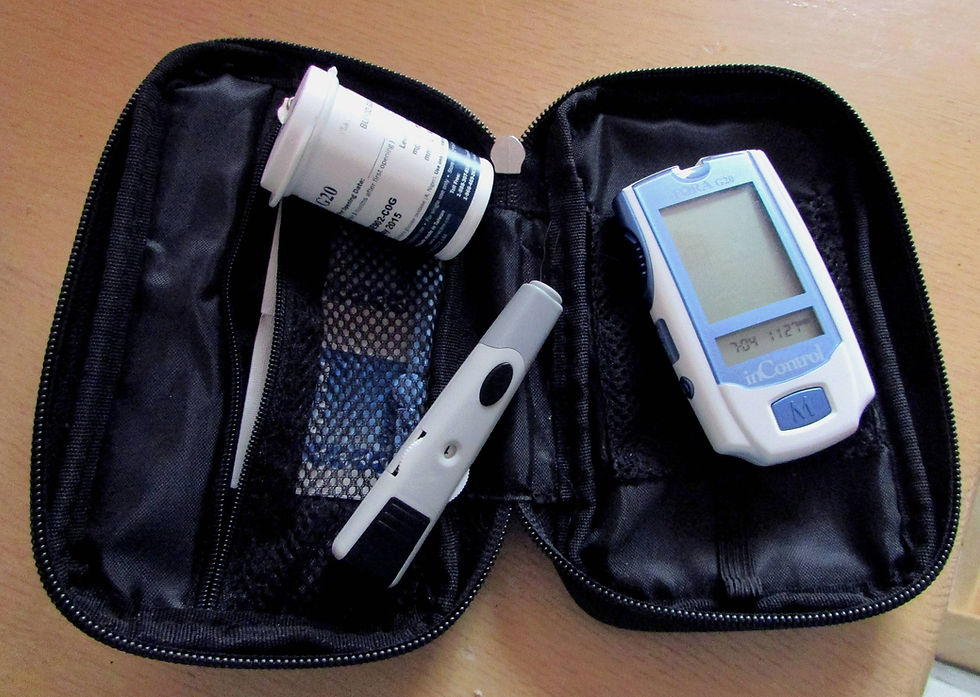The 'China Virus': From A Chinese-American Perspective
- Ciara Madden
- Jan 9, 2023
- 4 min read
Born to a Chinese mother and an entire lineage of strong Chinese immigrant women, I have experienced great pride in being a Chinese American. Despite this pride, American culture has had varying views of Chinese Americans, and I firsthand have endured and witnessed the hesitation of said Chinese pride in the course of American history. Observed over the course of U.S. history, many communities of color have been a scapegoat for public health crises, such as the tuberculosis outbreak involving the blame of Black women and, more recently, the COVID-19 pandemic involving the blame of Asians. Throughout the COVID-19 pandemic, the Chinese and Asian American Pacific Islander [A.A.P.I.] communities have been lumped together and footed the blame for an international crisis in America. Government leaders, such as former President Donald Trump, have gone so far as to entitle the pandemic the “China Virus” or the “Kung Flu” (Kurilla, 2021) In designating the pandemic as Chinese, Donald Trump, arguably, deemed it the fault of the Chinese community. This brutal racism and blame of Chinese and A.A.P.I. communities is not the first-time minority groups have been forced to bear the burden of public health crises.
Black women have historically been blamed for pandemics and deemed deadly to society. Dr. Sabrina Strings argues that “the manifestation of Black female sensualism within the context of a chronic disease has marked Black women not just as deadly but as social dead weight” (Strings, 2015). Specifically, Strings asserts that the tuberculosis outbreak at the turn of the 20th century led Black women to be viewed as agents of a deadly contagion. In the tuberculosis outbreak, physicians and public health officials went so far as to instill fear that Black female domestic servants would be spreading the dangerous pathogen to White homes. Moreover, Black sensualism and the “risky behaviors” of Black women have been termed the root cause of the obesity crisis in the last two decades (Strings, 2015). Risky behaviors, or unconscious actions, have historically been associated with Black culture by White communities and allowed for the public health crisis to place Black overconsumption as the root cause of obesity in America. Over many decades of American history, Black women have been blamed for pandemics and health crises, and the A.A.P.I. community is now experiencing the same blame.
In addition to placing blame, American communities have continuously felt comfortable identifying a scapegoat for public health crises in minority populations, validating systemic racism and isolating one group as the inherent problem. Asian American women have begun to experience the transition of blame to brutal hatred, living in fear since the rise of COVID-19. We have seen blame turn to hatred and violence as nearly two-thirds of anti-Asian hate crimes have been against women. Christina Yuna Lee was a senior creative producer at a digital music platform, Splice (Aswad, 2022). She was followed and fatally stabbed in her own apartment in February 2022 (Aswad, 2022). Michelle Alyssa Go worked at Deloitte Services LP and spent her free time helping women and children in at-risk communities as well the homeless (Sanchez & Moshtaghian, 2022). She was killed after being pushed off a subway platform in Times Square in January 2022 (Sanchez & Moshtaghian, 2022). Delaina Ashley Yaun, Xiaojie Tna, and Daoyou Feng all worked at Young’s Asian Massage in Acworth, Georgia (Fausset, 2021). Soon Chung Park, Hyun Jung Grant, Suncha Kim all worked at Gold Spa in Northeast Atlanta. Yong Ae Yue worked across the street at the Aromatherapy Spa (Fausset, 2021). They were mothers, immigrants, and some of them loved to dance or sing karaoke (Fausset, 2021). They were all shot on the same day in their place of work in a string of killings and hate crimes in March of 2021 (Fausset, 2021).
Rather than single populations being put to blame for public health crises, we must instead examine the cultural narratives of health and what governance is in place to protect the American people - all American people. Government agencies, such as the Center for Disease Control, must establish proper pandemic preparedness and equip communities with the infrastructure for lockdowns and personal protection. Governmental preparedness for global pandemics must be held responsible for said crises instead of individual minority bodies. My grandmother, my aunties, my mom, and I are not to blame for the coronavirus.
We are not the pandemic.
Works Cited
Aswad, J. (2022, February 14). Splice producer Christina Yuna Lee murdered in New York, suspect in custody. Retrieved January 5, 2023, from https://variety.com/2022/digital/news/splice-christina-yuna-lee-dead-dies-1235181487/
Kurilla, R. (2021). “Kung Flu”—The Dynamics of Fear, Popular Culture, and Authenticity in the Anatomy of Populist Communication. Frontiers in Communication, 6. https://doi.org/10.3389/fcomm.2021.624643
Fausset, R. (2021, March 26). 8 dead in Atlanta spa shootings, with fears of Anti-Asian bias (published 2021). Retrieved January 5, 2023, from https://www.nytimes.com/live/2021/03/17/us/shooting-atlanta-acworth
Sanchez, R., & Moshtaghian, A. (2022, January 19). Times Square Subway victim Michelle Alyssa go remembered as a 'compassionate soul'. Retrieved January 5, 2023, from https://www.cnn.com/2022/01/19/us/michelle-alyssa-go-life-family/index.html
Strings, Sabrina. (2015). Obese Black Women as “Social Dead Weight”: Reinventing the “Diseased Black Woman”. Signs. 41. 107. 10.1086/681773.




Comments